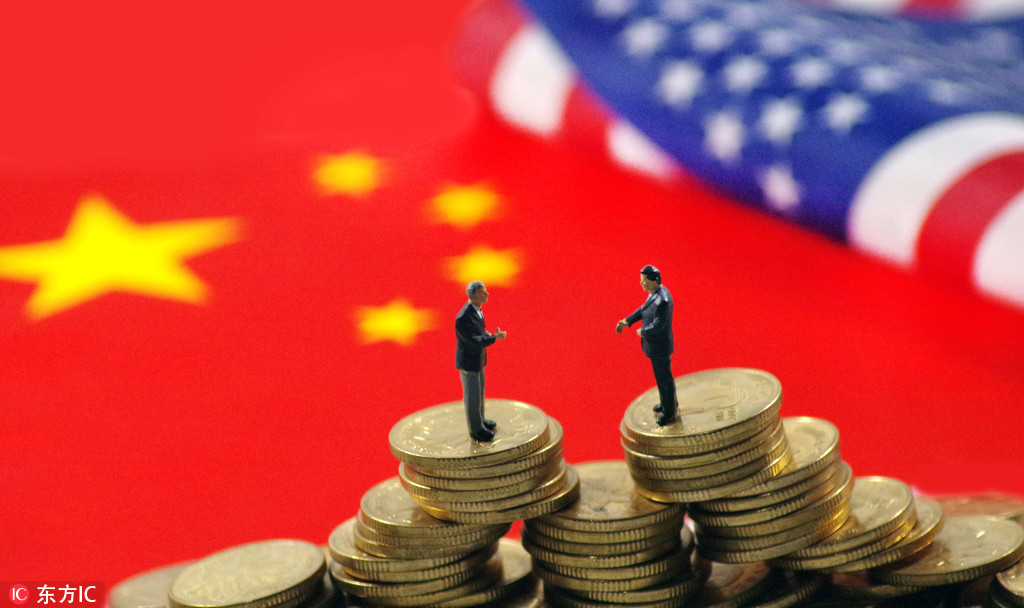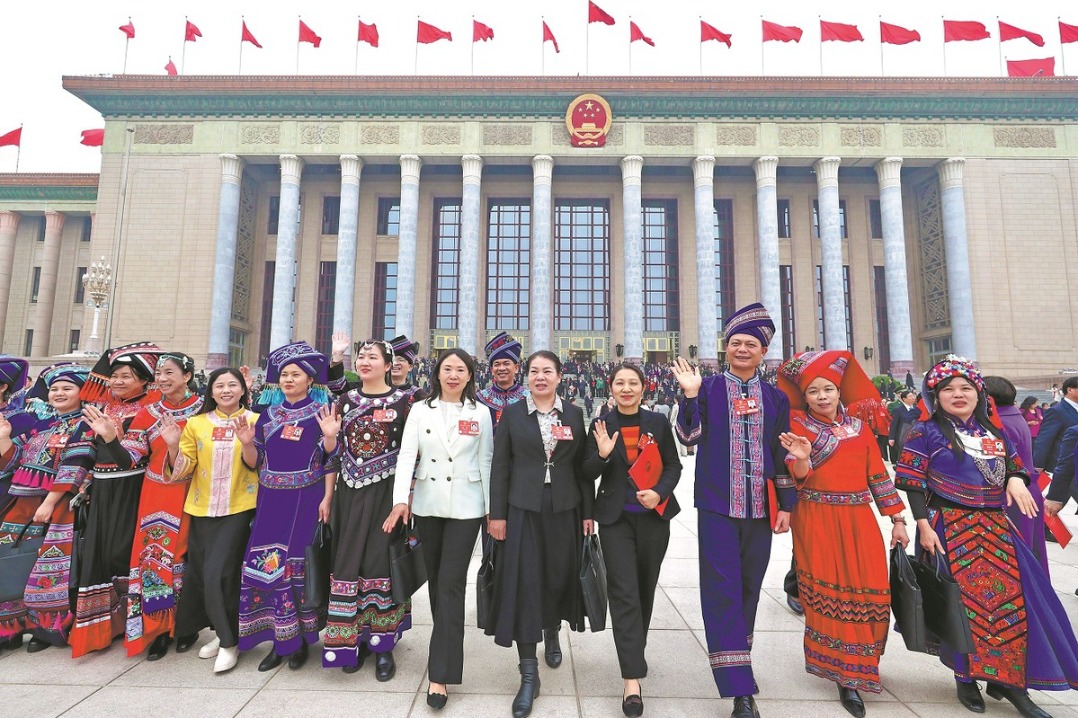Trade war hurts US more than China


A return to the 2016 status quo would benefit both China and the US. Moreover, this would be a boon for the global economy as a whole since the uncertainty caused by the trade war has severely dented investor, business and consumer confidence around the world.
However, while such an outcome is certainly possible, given the acrimonious factional nature of the American government, it does not seem likely. As a result, the most plausible outcome of a Xi-Trump meeting at the G20 would be for the situation to not deteriorate. This is unfortunate because while the US believes it is hurting China, in fact, it is hurting itself much more.
This is unfortunate because while the US believes it is hurting China, in fact, it is hurting itself much more.
For example, the trade deficit is cited as an example of China taking advantage of the US. However, the biggest beneficiaries of Chinese exports to US are often American companies. The Apple iPhone is a case in point. According to a report by CBS News, a single iPhone is recorded as an import worth $240 when it enters the US with the iPhone 7 and 7 Plus contributing $15.7 billion to the trade deficit in 2017. However, Chinese companies only earn $8.46 of this $240. Marquee American companies such as Intel, Micron, Qualcomm and Texas Instruments are major suppliers alongside thousands of less well-known ones. According to TechCrunch, Apple spent $60 billion with American suppliers in 2018.
And it's not only these American suppliers benefiting from iPhone imports. Key Apple suppliers are blue chip companies with their shares held by millions of hard-working Americans who count on these investments for their retirement. As trade hostilities continue, more and more Americans are asking why US government is undermining their retirement security.
American farmers are also suffering. Farming is uniquely stressful because of the numerous factors beyond a farmer's control, including weather, access to and the price of capital, and market-driven, gyrating crop prices. But the China market has long been an island of dependability and prosperity in these turbulent waters, with the agricultural sector one of the few to enjoy a consistent trade surplus with China. But in an act of political folly, the government has sacrificed the livelihoods and even the lives of American farmers in this misguided trade war.
While the US seems bent on economic chaos and self-destruction through trade isolationism, the trend toward globalization continues apace and is even accelerating in the rest of the world. And China is increasingly seen as an indispensable and trustworthy partner. For example, China and Russia recently upgraded their relationship to deepen trade, investment and technology cooperation with bilateral trade growing from $70 billion in 2016 to $107 billion last year. Moreover, in 2016 Russia became China’s biggest supplier of crude oil and recently contracted to sell China 1.3 trillion cubic feet of gas per year for the next 30 years. Meanwhile, G7 countries such as Germany, Italy and the UK, are actively and rapidly strengthening their partnerships with China while other European countries, like Switzerland and Greece, also are turning towards China to further deeper economic integration and advance a community of shared future for mankind .
Africa also is deepening its economic and cultural ties with China through the Belt and Road Initiative and the Forum on China-Africa Cooperation. For example, the China-Africa Economic and Trade Expo to be held in Changsha this week will mark an important milestone in the creation of the institutional mechanisms for this vital relationship encompassing one-third of the world's population. And despite the geographical distance, even South and Central American countries have prioritized participating in the more egalitarian and mutually beneficial form of globalization and integration proposed by China.
While the US is a large and prosperous country, it is less than 5% of the world's total population and about a quarter of global GDP. Also, most of the growth in both population and economic output are occurring outside its borders. As such, it has much to gain by not standing apart from this trend towards globalization and integration. A more realistic appreciation of its role in the community of nations would benefit not only other countries but, most important, its own citizens as well.
The author is a senior researcher at the Center for China and Globalization, the Beijing-based independent think tank.
The opinions expressed here are those of the writer and do not necessarily represent the views of China Daily and China Daily website.


































